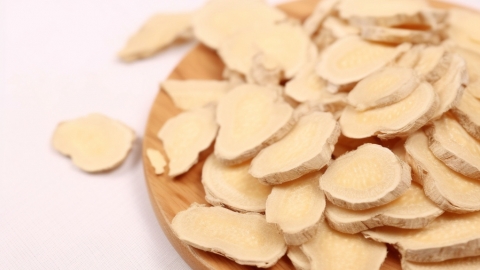What is incompatible with ginseng?
Generally, ginseng is considered incompatible with certain substances such as Wu Ling Zhi (fructus pentacii), Veratrum (Veratrum nigrum), tea, grapes, radishes, and others. If usage is necessary, it should be conducted under the guidance of a physician. Detailed explanations are as follows:

1. Wu Ling Zhi (Fructus Pentacii)
Wu Ling Zhi is a medicinal herb used in traditional Chinese medicine, with primary components including fatty acids and sterols. It is incompatible with ginseng, and combining the two may lead to the degradation of ginseng's active ingredients, thereby reducing its therapeutic efficacy.
2. Veratrum (Veratrum nigrum)
Veratrum is a toxic herbaceous plant incompatible with ginseng. Concurrent use may cause severe toxic reactions, including symptoms such as vomiting, diarrhea, and palpitations. The components in Veratrum can enhance the toxicity of ginseng.
3. Tea
Tea contains large amounts of tannic acid, which, when consumed together with ginseng, may interfere with the absorption of ginseng's active components, particularly the bioavailability of ginsenosides, thus weakening ginseng's nourishing effects.
4. Grapes
Grapes also contain tannic acid, which can similarly affect the efficacy of ginseng when consumed together. Proteins and other nutrients in ginseng may interact with tannic acid, forming indigestible compounds that reduce ginseng's nutritional value.
5. Radish
Radish has the effect of lowering Qi, while ginseng functions to tonify Qi. These opposing actions mean that simultaneous consumption may reduce ginseng's nourishing effects or even impair vital energy.
However, the concept of "incompatibility" in traditional Chinese medicine is not absolute; the extent of its impact depends on individual differences, dosage, and specific circumstances.








